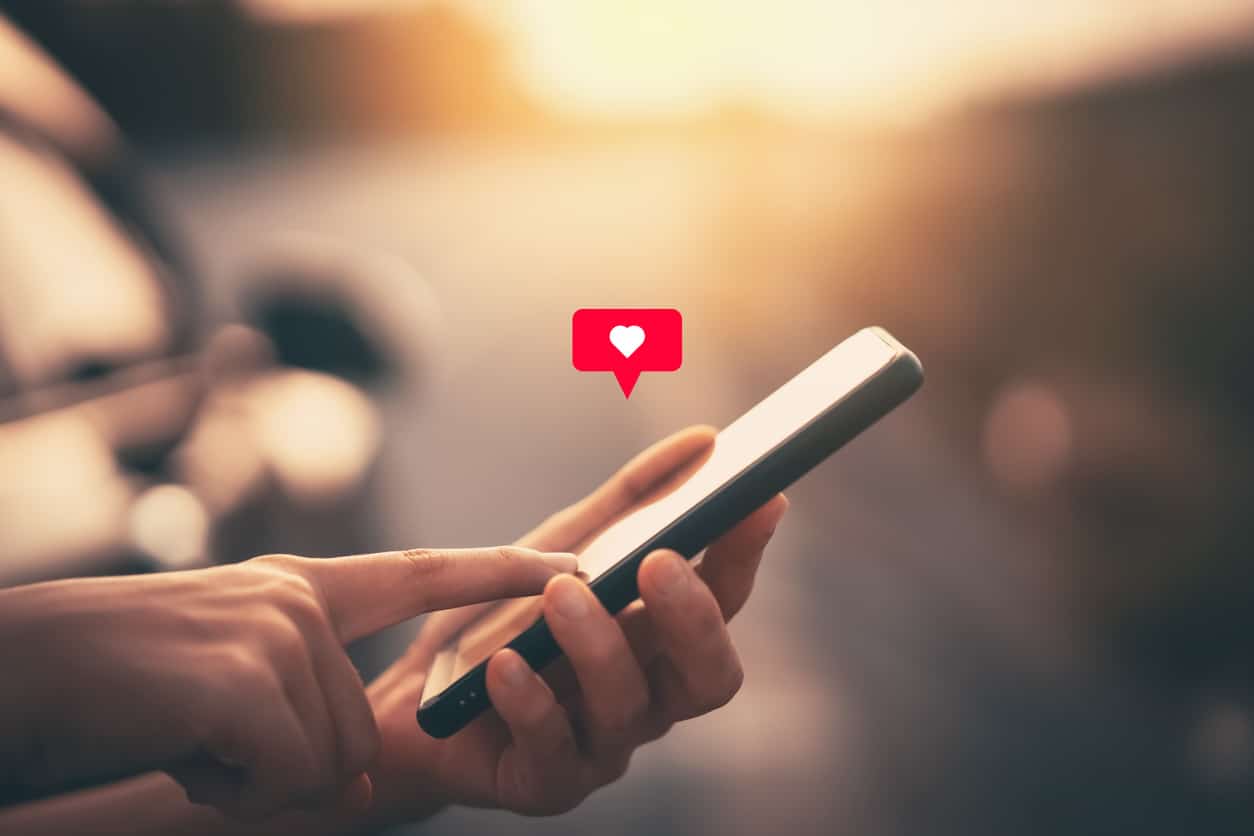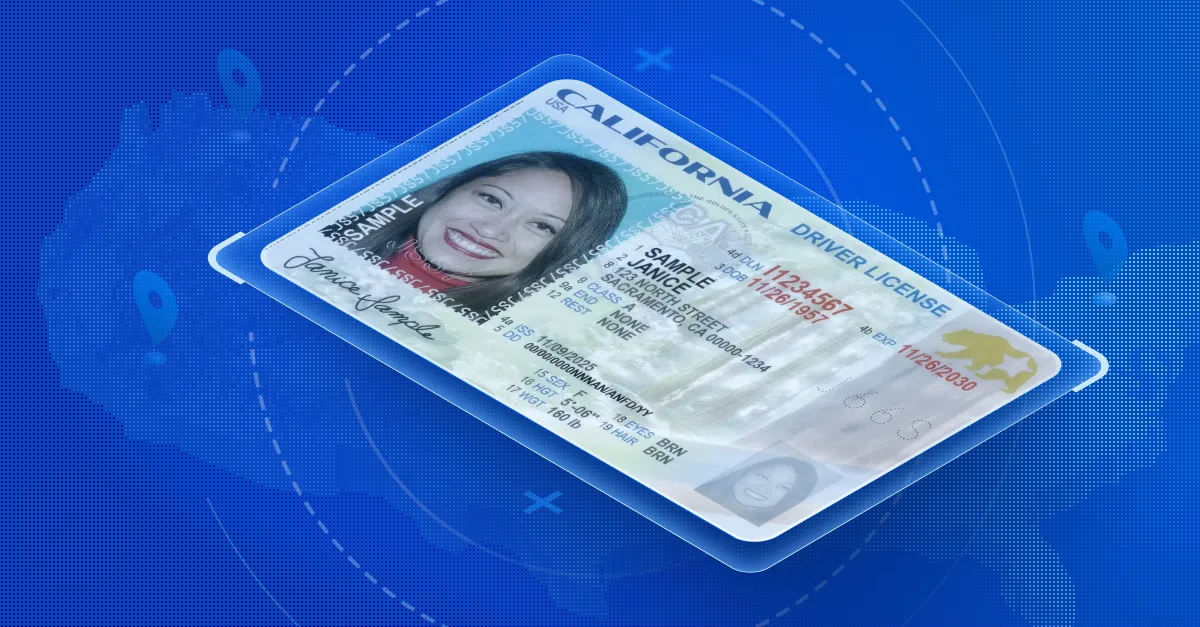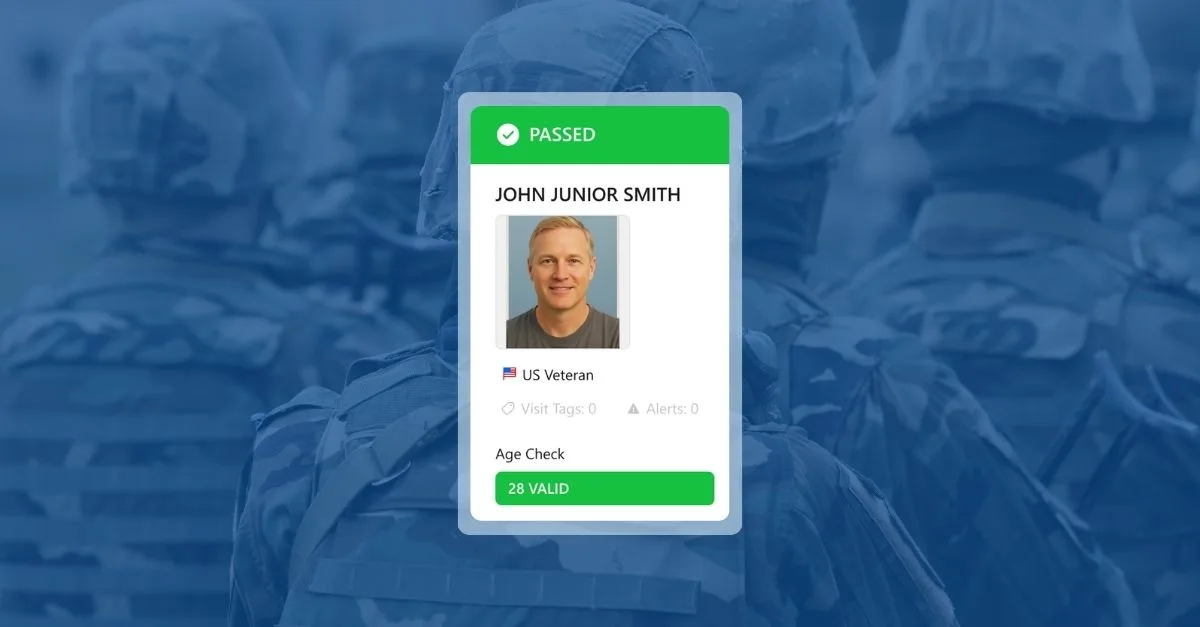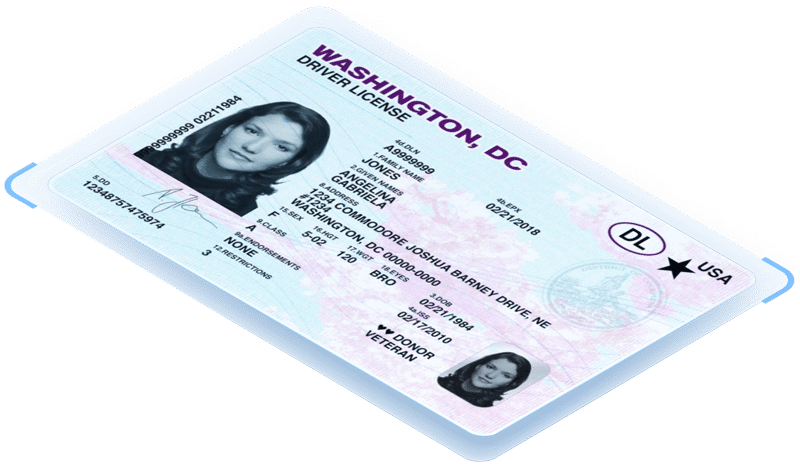Dating apps can be a great resource for meeting new people – 10% of adults met their spouse or partner through a dating app or website. While there are plenty of success stories of couples meeting through apps, they are also rife with opportunities for scammers and criminals, leading developers to implement more robust identity verification for their dating apps or sites.
Dating apps have started to decline in popularity, in part due to negative press and safety concerns. While apps like Tinder and Bumble once had a stronghold in the dating market, now 79% of US college students are not using dating apps, with almost half citing safety as the top reason they choose not to date online. Most dating app users have encountered catfishers and bots, often attempting financial scams, and some have even fallen victim to violent and tragic crimes perpetrated by another user on the app.
Some of the largest dating apps on the market have begun strengthening their identity verification processes to keep their businesses profitable and keep users safe. As dating apps and sites implement identity verification, it can be difficult to understand how effective these methods are. We’ve compiled the most recent information on dating app identity verification processes and put them into three categories – strong, moderate, and weak.
- Strong dating app identity verification truly confirms that the user is who they claim to be by using the phone camera to compare the user’s face to their government-issued identity document. For the identity verification method to be classified as “strong,” the face matching process must include anti-spoofing and liveness checks to ensure the user is not attempting to use a photo or video to falsely verify their profile.
- Moderate dating app identity verification means that, at the very least, verified users will look like the photos in their profile. Each app in this category uses the user’s phone camera to match their facial geometry to the face in the profile’s photo. This process, like the apps classified as having strong identity verification, must include anti-spoofing and liveness checks to ensure the user is not attempting to use a photo or video to falsely verify their profile.
- Dating apps with weak identity verification processes do not offer users the ability to indicate that they are who they claim to be. While some of these apps may have some level of identity verification, this usually just consists of confirming the associated email or phone number belongs to the user, or they are not available until after the profile has been flagged as suspicious.

Does Tinder require users to verify their identity?
Tinder is the most popular dating app in the world with more than 75 million monthly active users, and is one of the many dating apps owned by technology company Match Group. In February 2024, Tinder announced a strengthened identity verification process, partially in response to negative press, including the 2022 true crime documentary The Tinder Swindler.
While Tinder does not require all users to be verified, the new identity verification process is robust, and according to a press release, the pilot program saw a 67% increase in matches for users with verified profiles. There are two levels of identity verification available on the app: photo verification and identity verification.
Photo verification requires users to upload a video selfie, which is compared against their uploaded photos to ensure the faces match. Users who opt-in to photo verification receive a blue camera icon on their profile, showing other users that the photos on their profile match the person behind the account.
Tinder’s full identity verification process includes the photo verification process and also requires users to submit a photo of their ID. Tinder uses the date of birth listed on the ID to ensure that the age listed on the profile is accurate and that the person in the photos from the profile, ID, and selfie, all match. Verified users receive a blue checkmark icon on their profiles.
Tinder Identity Verification Rating: Strong

Does Meet Kinksters require users to verify their identity?
Meet Kinksters, as described on the app store, is “the first online dating app that empowers you to connect on both romantic and sexual dimensions of compatibility.” In an effort to prioritize user safety, Meet Kinksters partnered with IDScan.net to implement the DIVE identity verification platform directly into the app.
Meet Kinkster’s full identity verification process ensures that users are who they claim to be, which “has proven a significant deterrent to spam and fraudulent profiles,” according to founder Brad Jones. The 3-step process takes 10-15 seconds and is completed within the app.
- Users take a photo of the front of their ID
- Users take a photo of the back of their ID
- Users take a selfie
This process verifies that the user matches the ID presented and that they are a real live person – not using a photo, video, or other form of spoofing. One aspect of the DIVE identity verification process that sets it apart from similar solutions is that DIVE also checks for fake IDs by reading the 2D barcode. Some dating apps have been hesitant to implement more secure identity verification, fearing that the process may deter users, but Meet Kinksters has had an 86% onboarding rate since implementation – weeding out the potential fraudsters, scammers, or criminals while allowing legitimate users to join the app.
Meet Kinksters Identity Verification Rating: Strong

Does Plenty of Fish require users to verify their identity?
Plenty of Fish, like Tinder, Hinge, Match, and OkCupid, is a dating platform owned by parent company Match Group. In 2023, Plenty of Fish added an optional selfie verification feature, allowing users to verify that the photos on their profile match the person running the account. Users who want to be “Selfie Verified” must upload a primary profile picture first, then are prompted to use their phone camera to take a selfie video which is compared to the profile picture. Users must keep the same primary profile picture in order to retain their Selfie Verified profile badge.
While Plenty of Fish’s verification method is not as robust as platforms like Meet Kinksters or Tinder, as it does not verify the user’s age or true identity, it does ensure that the user is the person from the photos on their profile.
Plenty of Fish Identity Verification Rating: Strong

Does Hinge’s require users to verify their identity?
Hinge is one of the many popular dating apps owned by parent company Match Group, and has a selfie verification process that is very similar to other Match Group app, Plenty of Fish.
Hinge’s verification process requires users to take a video selfie that matches the user’s facial geometry to the face in photos on the user’s profile. Profiles that have been “Selfie Verified” receive a purple check mark, and according to Match Group, Hinge users with Selfie Verified profiles go on more than 200% more dates than those with unverified profiles.
Hinge Identity Verification Rating: Strong

Does OkCupid require users to verify their identity?
OkCupid was founded by the people who started the popular study tool SparkNotes and was later acquired by dating app giant Match Group. Like other Match Group apps Hinge and Plenty of Fish, OkCupid offers verification profile badges for users who complete their photo verification process. Users who want to be “Photo Verified” must use their phone camera to take a selfie video which is compared to the profile picture.
OKCupid Identity Verification Rating: Strong

Does Bumble require users to verify their identity?
Bumble, the second most popular dating app in the US, was founded in 2014 by former Tinder co-founder Whitney Wolfe Herd. Bumble gives users the option to verify their photos and occasionally requires it when the account is suspected to be fake or operated by a bot.
In order to verify their profile, users must take a selfie while mimicking a randomized pose. A combination of human and automated review is then used to make sure the person matches the photos in their profile. Verified users receive a yellow badge with a star on their profile to indicate to other users that they have been verified.
Bumble Identity Verification Rating: Moderate

Does Raya require users to verify their identity?
Raya is a dating app primarily known for its exclusivity, with only 8% of applicants being accepted, according to the New York Times. The bar to entry is significantly higher for Raya when compared to most dating apps – an application, monthly fees, and iPhone-only availability all create barriers that make this app less appealing to catfishers and scammers. While Raya first gained notoriety as a dating app geared toward celebrities, as the app has gained popularity it has accepted a wider variety of users.
There are a few traditional forms of identity verification built-in to Raya. Users must verify their email, and enter personal information like their Instagram page and career details to submit their application. Also, while technically optional, generally users need to have referrals from existing members to be accepted. The application review process is not public so it is unclear how the applicant’s information is verified.
Raya’s exclusivity and application process may lead users to assume that the app has thorough identity verification methods but with few insights into these methods and a broader range of users being accepted, it is best to use the same safety precautions recommended for more traditional dating apps.
Raya Identity Verification Rating: Moderate

Does eHarmony require users to verify their identity?
eHarmony, launched in 2000, claims to have helped over 2 million couples find love with their compatibility matching algorithm. Unlike most dating apps or sites that require minimal information to create a profile, eHarmoney requires users to complete an extensive questionnaire to join. eHarmony was initially ahead of the curve with dating app identity verification, offering verification through RelyID and allowing verified users the option to only interact with other verified members in 2008.
Unfortunately, eHarmony does not seem to offer this identity verification anymore, opting instead for a much less trustworthy SMS verification process. This verification process sends a code to the user’s phone number that they must enter to verify that it belongs to them. This process does not verify anything beyond them having access to a phone connected to the number entered. Users who verify their phone number receive an “SMS verified” symbol on their profile.
eHarmony Identity Verification Rating: Weak

Does Match.com require users to verify their identity?
Match, formerly Match.com, was launched in 1995, making it one of the oldest still-running online dating platforms. Match is owned by Match Group, which owns Tinder, Hinge, OkCupid, and Plenty of Fish. Despite having the same parent company, Match has a much less rigorous identity verification process than apps like Tinder. According to Match Group, photo verification is encouraged on all of their platforms, however, it does not appear that this feature is available for Match profiles.
Match, like eHarmony, currently only offers SMS verification, which confirms that the phone number connected to the account belongs to the user. While this can weed out some bad actors, it does not do much to verify identity or give users peace of mind. SMS verified users receive a phone icon on their profiles to indicate that their phone number has been verified.
Match.com Identity Verification Rating: Weak

Does Coffee Meets Bagel require users to verify their identity?
Coffee Meets Bagel is a dating app that gained notoriety in 2015 when it was featured on the popular television show Shark Tank. While Coffee Meets Bagel does not have a verified profile feature, they do use the third-party platform Persona to verify user identity for profiles flagged as fraudulent. In order for these profiles to be re-activated after being flagged, users must complete a process similar to Tinder’s in which they submit photos of their government-issued ID and a selfie. The user’s face must match the photo on the ID and the age on the profile must match the age on the ID.
Match.com Identity Verification Rating: Weak

Does Feeld require users to verify their identity?
Feeld is a dating app primarily geared towards users looking for alternative relationship models, including ethical non-monogamy, polyamory, or casual hookups. Like most dating apps, an email address is needed to create an account, but this is the only form of verification needed to create a profile. In the app’s terms of service, they state that they do not run identity checks on members, but according to a March 2023 article, the team at Feeld has started to look into identity verification services as the app experiences rapid growth. Currently, some Feeld users attempt to verify other members’ identities before meeting in person by requesting photos with the current date in view.
Feeld Identity Verification Rating: Very Weak

Does Ashley Madison require users to verify their identity?
The dating app Ashley Madison, with the motto, “Life is short, have an affair” and a notorious data breach in 2015, is no stranger to controversy. The business model also differs from most dating apps, requiring members to use credits to begin a conversation. Due to the generally secretive nature of most Ashley Madison accounts, there currently are very few required identity verification protocols.
Ashley Madison does use a third party vendor’s services embedded directly into their app to verify identity for suspicious or reported profiles. Ashley Madison and the FBI have warned users about a known identity verification scam, where users are sent fraudulent links to pay a fee and “verify their identity.” The company has stated that they do not charge users for their identity verification services and that their process does not require users to leave their website or app.
Ashley Madison Identity Verification Rating: Very Weak
Will identity verification become more common on dating apps?
Current trends, both with dating app users and dating app companies, point to identity verification becoming increasingly common. With the most popular dating app, Tinder, having implemented an optional, robust identity verification process, it would not be surprising if more apps followed suit. Prospective dating app users have increasingly turned to alternative forms of dating, and companies like Match Group are learning that more reliable security measures can help reverse this trend.
It is essential that users feel safe online, especially with platforms like dating apps where they are especially vulnerable. Identity verification offers a way to give users peace of mind, and platforms like DIVE are able to accomplish this without forfeiting seamless user experience. If you are interested in learning more about remote identity verification solutions, reach out to an expert today.





